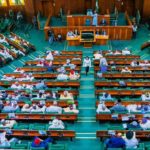The Nigeria Entertainment and Economic Roundtable (NEER) has been launched in Abuja to reposition the creative industry and promote economic diversification.
The roundtable organised by Afrocultour has partnership from the Federal Ministry of Finance, Budget and National Planning, and the Lagos State government. It also got support from the Federal Ministry of Information and Culture, and the Nigerian Television Authority (NTA).
The roundtable is also to call for a more private sector role in supporting the federal and state governments’ efforts at achieving urgent economic diversification as outlined in the federal government’s 2021 N13.08 trillion proposed budget.
The Managing Director, Afrocultour, and Director General of NEER, Chuks Akamadu, said the roundtable will design an inclusive industry framework for stimulating and re-energising the economy to stabilise and flourish sustainably.
This would be amid the COVID-19 pandemic, post COVID-19 and in the face of unprecedented dwindling in the fortunes of crude oil.
“The vision is to be at the forefront of the optimal harnessing of Nigeria’s vast entertainment resources, potential and assets for the overall economic well being of the nation, sub-national entities and individual Nigerians,” he stated.
The roundtable will also have participants that include ministers and officials in charge of culture from Ghana, South Africa, the United Arab Emirates (UAE), India, France and Canada and also from their heads of mission in Nigeria, to share ideas.
“We are currently assembling a top-class panel of discussants from a list of practitioners, policymakers, scholars, business leaders and development partners,” Chuks said.




